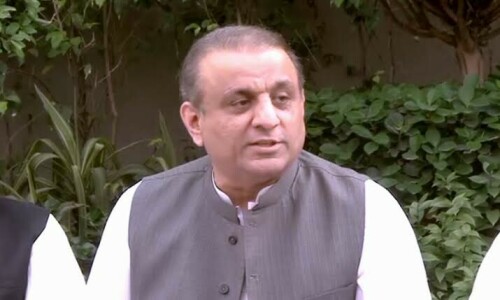ISLAMABAD: With an overarching framework for vulnerable areas, a comprehensive and long-term strategy has been developed to ensure a polio-free world by 2018.
Major new elements in the “Polio Eradication and Endgame Strategic Plan 2013-18” are strategic approaches to all polio diseases, emphasis on improving immunisation systems, introduction of new technologies, enhanced risk mitigation and contingency strategies, and timeline for completion of the initiative.
For Pakistan, the coordination between security and local authorities to generate area-specific assessments has been institutionalised in the plan with the setting up of provincial committees.
The World Health Organisation and Unicef — the two implementing partners — are taking steps to ensure their intensified support for the programme despite escalation in security threats.
The strategic plan brings together a comprehensive approach to completing polio eradication. It is built on primary principles that the programme must be institutionalised within the broader health agenda and must maintain neutrality.
The plan developed by the Global Polio Eradication Initiative (GPEI) in consultation with national health authorities, global health initiatives, experts, donors and other stakeholders in response to a directive of the World Health Assembly has the goal of eradicating and containing all wild, vaccine-related and Sabin polioviruses so that no child ever again suffers paralytic poliomyelitis. The basic elements of the strategy are to reduce the exposure of vaccinators to potential threats by holding campaigns that are of shorter duration and lower profile.
For safety and security, the plan seeks enhanced coordination between civilian and security services. It incorporates religious leaders’ advocacy to build up ownership of and solidarity for polio eradication across the Muslim world, including for the protection of children against polio, the sanctity of health workers and the neutrality of health services.
The GPEI says in a report that in addition to declining cases in Afghanistan and Pakistan, evidence demonstrates that these countries and Nigeria have showed marked improvement in increasing vaccination coverage last year.
In Pakistan, the proportion of highest-risk districts achieving the estimated target threshold of 95 per cent increased from 59pc in January 2012 to 74pc in October.














































